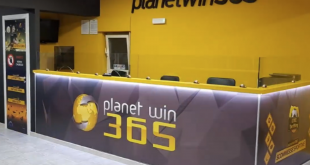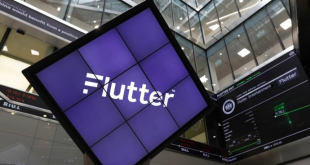Acquiring a licence and remaining compliant with different regulatory requirements is arguably one of the most important factors to consider when setting up an online gambling company.
However, something that must be considered is the intricacies of each individual market. How long does it take to acquire a licence? What are the costs associated with acquiring a licence? What products are you permitted to offer to bettors? Each of these questions must be considered well before entering a new market.
In part two of BetConstruct’s ‘back to basics’ series, the platform and solutions provider dives further into licensing and the conditions that need to be met for some of the biggest gambling markets.
BetConstruct pinpoints five key gambling regulators: UK Gambling Commission, Curaçao e-Gaming Licensing Authority, Malta Gaming Authority, Isle of Man Gambling Supervision Commission and the Gibraltar Licensing Authority.
In a blog post, BetConstruct said: “The gambling licence is an indicator of the high-level transparency and security of an online gaming and betting website. Licences are issued by the licensing authority of the region one wants to operate in. The regions are referred to as online gambling jurisdictions or licensing jurisdictions. They have different sets of requirements, codified by law, that allow issuing a gambling licence.
“The type of a gambling licence you need depends on a variety of factors: the category of gaming and betting (online poker, slots, sportsbook, etc.), the jurisdiction you and/or your players are based on, operating currencies and so on.”
In the UK, the betting industry is overseen by the UK Gambling Commission (UKGC). But to operate, advertise or accept players in this market, gambling operators must obtain a remote licence from the regulator.
The UKGC is said to be “one of the most trustworthy gambling licence providers”. Licences take approximately 16 weeks to process, and are valid for three years – with extensions permitted. The challenging aspect of obtaining a licence from UKGC, BetConstruct explained, is relatively high tax rates – with the regulator imposing a 15% income tax on gambling operators.
What should be considered with the UK market is that there is currently an ongoing review of the country’s Gambling Act. Whilst the findings of this are yet to be published, it can be said that there is likely to be sweeping change across the industry – especially since the 2005 Gambling Act has not been updated to keep advancing technologies in mind.
The Maltese market is overseen by the Malta Gambling Authority, with licences “falling under the hard-to-get category”.
BetConstruct explained that while the market has a series of strict regulations, guidelines, and legislations, its “operating possibilities (across the EU), favourable costs/taxes, and high safety features” make it an attractive market for gambling operators.
When looking to obtain an MGA licence, gambling operators have two options: Gaming Service Licence (for B2C operations) and Critical Gaming Supply licence (for B2B).
These two categories are then sub-categorised even further, with four types available. Type one covers games of chance played against the house, the outcome of which is determined by a random number generator – this includes casino-type games (roulette, blackjack, baccarat, poker) played against the house, lotteries, secondary lotteries and virtual sports games.
Type two includes games of chance not involving a random number generator. Alternatively, it is determined by the result of an event or a competition irrelevant to a game of chance. The operator manages its own risk by managing the odds offered to the player.
Type three covers player-vs-player games such as poker, bingo, betting exchange, and other commission-based games. Meanwhile type four spans controlled skill games.
Malta licences incur a 5% gaming tax applied to gaming revenue generated from Malta-based players, and a 35% corporate tax rate applied to the profits generated by remote gaming operators.
As BetConstruct highlights three additional markets that operators should consider, the company also raises the possibility of working alongside a B2B provider to enter new markets.
It added: “If you want to be considered a trustworthy and responsible gambling operator, your online and land-based gambling operations must be carried out on a legal basis. This means you need to obtain a gambling licence from the jurisdiction you plan to set up your online gambling business in. Depending on the jurisdiction, online gambling licences may have different requirements and opportunities.
“Yet, issuing a gambling licence from a reputable jurisdiction is not easy. It can be a time-consuming and costly process, especially for igaming start-ups. Alternatively, you can always try another trustworthy B2B supplier for a licence to initiate your gambling operations.
“BetConstruct offers a bunch of licences and certificates for its partners to operate with. The White Label offering includes betting and gaming products under our licences of Curaçao, Malta, UK, ONJN, France, etc.”
To read more about online casino licences, conditions, countries, operation and uses, you can visit BetConstruct’s blog post









